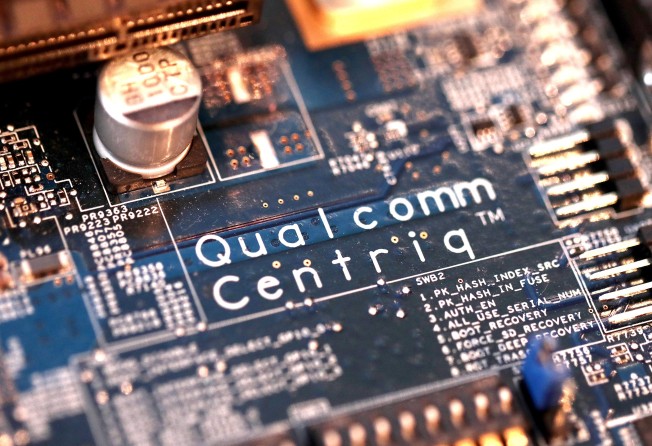Qualcomm drops US$44 billion NXP bid after failing to secure Chinese antitrust regulator’s nod
Deadline for the takeover agreement expired at noon Hong Kong time without any word from China’s antitrust regulator, crucial for the deal to be effective in the world’s biggest consumer market

US chip maker Qualcomm has walked away from its US$44 billion bid for NXP Semiconductors after failing to secure the approval of China’s antitrust regulators for the biggest takeover in the chip industry, becoming the highest-profile victim since a trade war broke out between the two economies.
The merger agreement expired at noon Hong Kong time on Thursday, nearly 21 months after Qualcomm first offered to buy the Dutch chip maker. Beijing’s silence on the acquisition led the US company to believe that approval - critical for the deal to be effective in the world’s largest consumer market - would not be given.
“We intend to terminate our purchase agreement to acquire NXP when the agreement expires at the end of the day today, pending any new material developments,” Qualcomm’s chief executive officer Steve Mollenkopf said in a statement on Wednesday afternoon in New York.
He said the company would move ahead with a US$30 billion stock buy-back plan rather than continue with its pursuit of NXP. Qualcomm still must pay NXP a US$2 billion break-up fee.
“If events occur that cause us to not terminate the transaction, we will continue to pursue the acquisition of all of the issued and outstanding shares of NXP,” Mollenkopf said.
Qualcomm seems to be “leaving the door open for China in a way that stops short of drawing a firm line in the sand by requiring outright ‘approval’ in order to avoid termination of the agreement,” said David Connor, an event-driven strategist at brokerage firm Seaport Global Securities. The deal allows extension “by mutual agreement of NXP and Qualcomm, if they so choose”.
China’s State Administration for Market Regulation remained silent about the acquisition in the run-up to the deadline. The administration could not be immediately reached for comment.
The silence on the Qualcomm-NXP merger is “about antitrust issues, and has nothing to do with Sino-US trade friction,” the Chinese commerce ministry’s spokesman Gao Feng said during a regular press conference in Beijing, without elaborating.
The acquisition was considered strategically important as the US and China are both racing to dominate 5G technology, the next stage for telecommunications networks.
Beijing’s silence on the deal will also exacerbate tensions between the world’s two largest economies as their trade war escalates. The lack of approval also raises questions about the effectiveness of US President Donald Trump’s tactics in negotiating with China.
“There is no real fundamental reason to kill it,” said Stacy Rasgon, a semiconductor analyst at US-based investment firm AllianceBernstein. “The deal fell victim to a combination of things, including trade, intellectual property and everything else.”

Qualcomm first announced the acquisition in October 2016, and eight of the nine countries – including the US and Japan – where Qualcomm does business signed off on the deal. Beijing remained the lone obstacle.
Qualcomm’s New York-listed shares rose 3.3 per cent in after-hours trading, while NXP shares fell 1.9 per cent.
A sudden escalation in trade hostilities further complicated the issue. Early this month, Trump imposed US$34 billion in tariffs on Chinese goods, with billions more to come in coming weeks.
If Trump goes ahead with his latest threat of levying an additional US$500 billion in duties, China is expected to resort to non-tariff measures in retaliation. Blocking major merger deals is one obvious tactic.
“There is only so much China can do on the tit-for-tat basis” because of the differences in import volumes between the two countries, said Rasgon. “China has to look at other ways if things escalate.”
Now that the merger appears to be moot, “it’s important for both companies, in one way or the other, to come up with a plan of what’s next,” Rasgon said.
With additional reporting by Yingzhi Yang in Beijing, Zhou Xin in Hong Kong